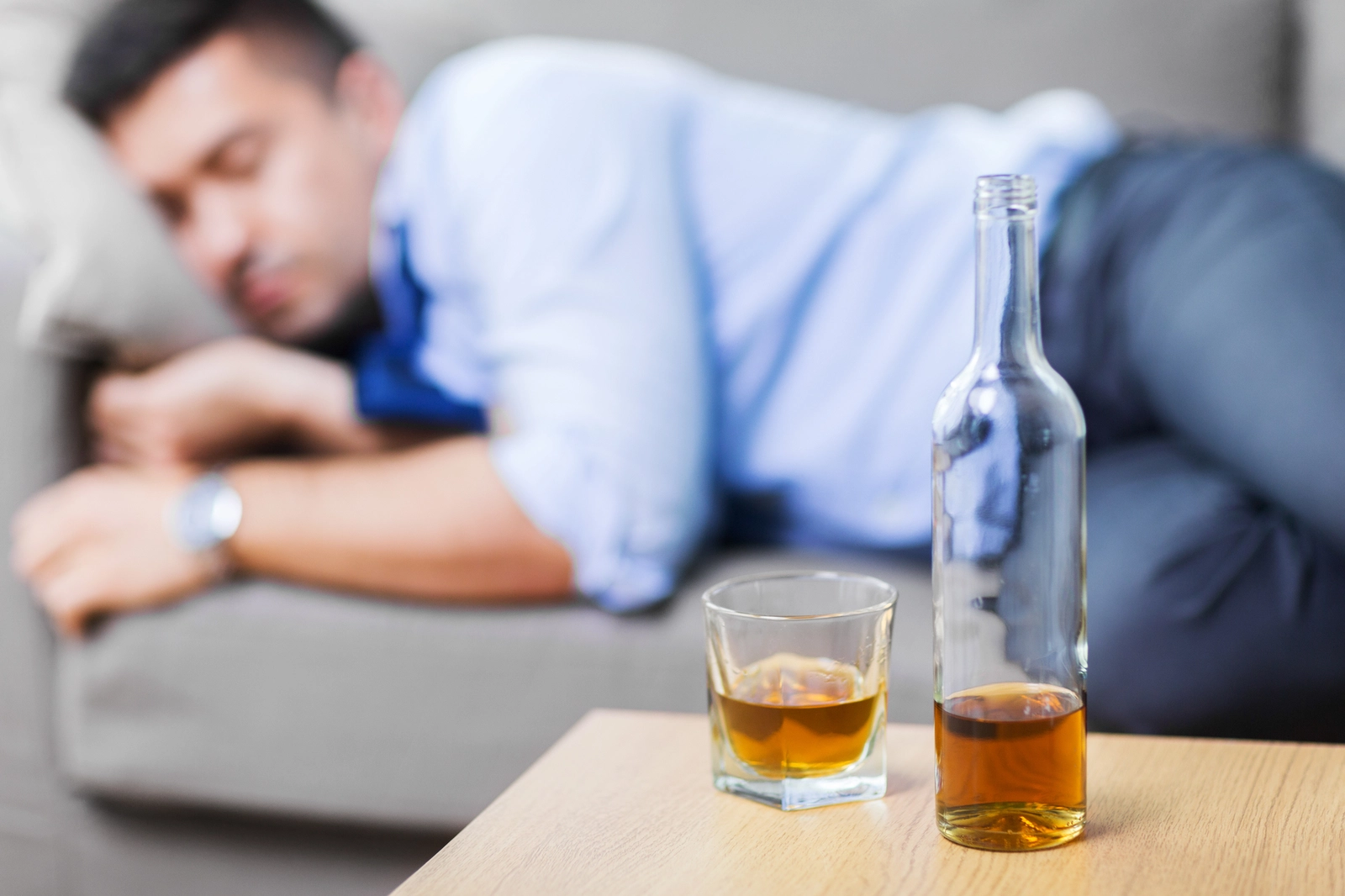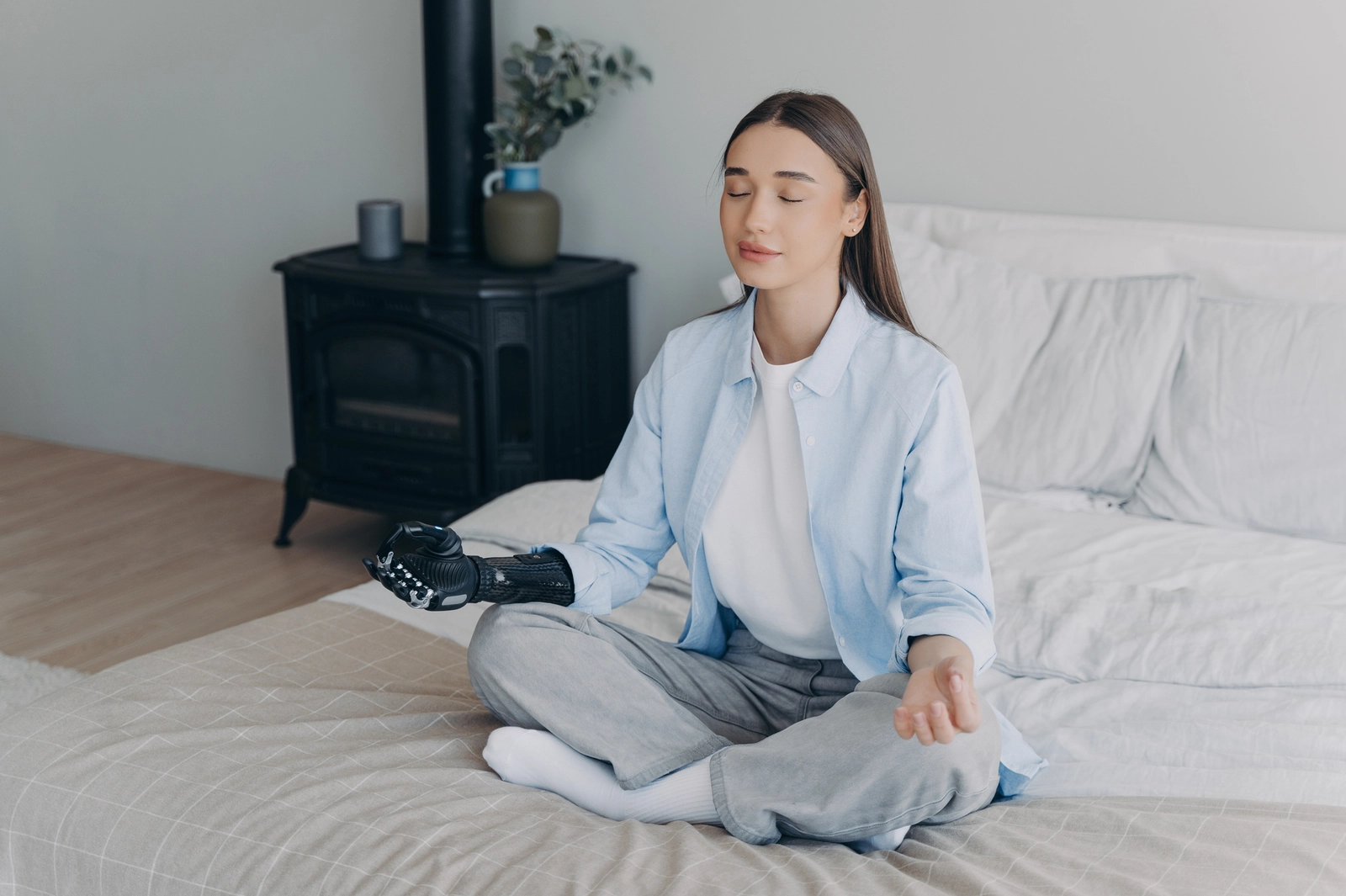Ambien and Alcohol: Why You Shouldn’t Have Both

- Ambien is a sedative-hypnotic sleep medication that slows brain activity to help with insomnia but should only be used short-term.
- Combining Ambien and alcohol is extremely dangerous as both depress the central nervous system, intensifying each other’s effects and potentially causing life-threatening complications.
- Common symptoms of mixing these substances include extreme drowsiness, impaired coordination, memory blackouts, dangerous behaviors like sleepwalking, and an increased risk of overdose.
- Alternatives to Ambien include other prescription medications, over-the-counter sleep aids, natural supplements, cognitive behavioral therapy, improved sleep hygiene, and treating underlying conditions.
Combining Ambien (zolpidem) and alcohol creates a dangerous situation that puts your health at serious risk. Both substances act as central nervous system depressants, and when taken together, they dramatically amplify each other’s effects. This combination significantly increases your chances of experiencing severe side effects, potentially life-threatening complications and can even lead to fatal respiratory depression.
What is Ambien?
Ambien, also known by its generic name zolpidem, belongs to a class of drugs called sedative-hypnotics and is a sleep medication.[1] Doctors prescribe this medication to treat insomnia in adults who struggle with falling asleep or staying asleep throughout the night. The medication works by slowing down brain activity, which helps promote sleep and relaxation.
Available in immediate-release and extended-release formulations, Ambien aims to provide temporary relief from sleep problems rather than serving as a long-term solution.[2] The immediate-release version helps people fall asleep quickly. At the same time, the extended-release formula (Ambien CR) contains two layers – one that dissolves quickly to help with falling asleep and another that dissolves slowly to help maintain sleep.
Why Is It Dangerous to Consume Ambien and Alcohol Together?
Mixing Ambien and alcohol creates a dangerous combination that significantly increases health risks.[3] Both substances depress the central nervous system, and when taken together, they intensify each other’s effects. The combination dramatically slows breathing and heart rate, potentially to life-threatening levels. Your risk of experiencing severe side effects increases substantially, including extreme drowsiness, impaired coordination, memory problems, and dangerous behavior while partially asleep. Many people who mix these substances report complete memory blackouts during which they performed complex activities with no recollection afterward.
Additionally, this combination significantly impairs judgment and reaction time, making driving or operating machinery extremely dangerous. The risk of overdose also increases substantially when these substances are taken together, as respiratory depression from both can lead to oxygen deprivation, coma, or death.
What Are the Symptoms of Combining Alcohol and Ambien?
The combination of Ambien and alcohol creates a dangerous interaction that severely impacts your central nervous system. Both substances enhance each other’s sedative effects, leading to a range of symptoms that can be unpredictable and potentially life-threatening:[4]
- Extreme drowsiness that can quickly progress to unconsciousness
- Impaired coordination, making even basic movements difficult and dangerous
- Confusion and disorientation that significantly increases accident risk
- Memory blackouts where activities are performed with no later recollection
- Sleepwalking and performing complex behaviors while partially asleep
- Slowed or irregular heart rate that may require immediate medical attention
- Respiratory depression potentially leading to oxygen deprivation
- Increased risk of overdose that can be life-threatening
- Severe impairment in judgment and decision-making abilities
- Exacerbated mental health conditions for those with underlying disorders
- Intensified withdrawal symptoms when attempting to stop either substance
- Higher likelihood of developing substance use disorders, including alcohol addiction or prescription drug dependence
- Dangerous behavioral changes, including risky activities or suicidal thoughts
The Risks of Impaired Judgment and Overdose
The combination of Ambien and alcohol severely compromises your judgment, creating a dangerous situation where normal decision-making abilities become significantly impaired. This impairment happens because both substances affect the same brain regions responsible for rational thinking and self-control. Your ability to assess risks and make safe choices declines dramatically, often leading to behaviors you normally avoid.
People experiencing this impaired judgment commonly engage in risky activities without recognizing the danger. These activities include driving while intoxicated, operating machinery, making poor financial decisions, sending inappropriate messages, engaging in unsafe sexual encounters, or consuming additional substances. Many people report performing these actions with no memory afterward, creating a particularly dangerous situation where you might not even realize you need help.
The overdose risks increase substantially when mixing these substances. Ambien and alcohol both suppress your respiratory system, and together they can slow your breathing to dangerous or even fatal levels. The threshold for overdose becomes much lower when these substances are combined, meaning even moderate amounts that might be safe separately can become life-threatening when taken together. Your body struggles to process both substances simultaneously, leading to higher blood concentrations and prolonged effects that further increase the danger.
Are There Alternatives to Ambien?
Several effective alternatives to Ambien exist for treating sleep problems. These range from other prescription medications to non-drug approaches that address the underlying causes of insomnia:
- Other prescription sleep medications, including different sedative-hypnotics, melatonin receptor agonists, and certain antidepressants prescribed for sleep
- Over-the-counter sleep aids containing antihistamines like diphenhydramine or doxylamine
- Natural supplements such as melatonin, valerian root, or magnesium
- Cognitive behavioral therapy for insomnia (CBT), which helps identify and change thoughts and behaviors that cause sleep problems
- Sleep hygiene improvements, including consistent sleep schedules, limiting screen time, and creating a comfortable sleep environment
- Relaxation techniques such as deep breathing, progressive muscle relaxation, or meditation
- Lifestyle modifications, including regular exercise, limiting caffeine and alcohol, and stress management strategies
- Treatment of underlying conditions that may be causing sleep disturbances, such as sleep apnea, depression, or anxiety
Alcohol Abuse and Alcohol Use Disorder
Alcohol abuse happens when drinking causes problems in your life. This includes drinking more than you planned, feeling strong urges to drink, and continuing to drink even when it causes trouble. Alcohol abuse often comes before alcohol use disorder but can exist on its own.
Alcohol use disorder is a medical condition diagnosed when drinking creates significant problems or distress.[5] It ranges from mild to severe based on how many symptoms you have. These symptoms include needing more alcohol to get the same effect, feeling sick when you stop drinking, trying but failing to cut down, and continuing to drink despite health or emotional problems.
Alcohol abuse and alcohol use disorder affect many parts of life. Your physical health suffers through liver damage, heart problems, higher cancer risk, and weakened immunity. Your mental health worsens with more depression, anxiety, and suicide risk. Relationships become damaged through conflicts, broken trust, and unpredictable behavior. Work life and finances suffer through reduced productivity, job loss, and money spent on alcohol.
Do People Abuse Ambien?
Yes, people do abuse Ambien despite it being a prescription medication intended for short-term insomnia treatment. Ambien abuse occurs when someone takes higher doses than prescribed, uses it without a prescription, takes it more frequently than directed, or uses it for its euphoric effects rather than for sleep. Some people crush and snort the tablets or mix them with other substances to enhance the high.
The sedative effects of Ambien can produce feelings of euphoria and relaxation that some find desirable, particularly at higher doses. This abuse pattern often develops after building tolerance to regular doses, with users seeking stronger effects by taking more of the medication. Ambien abuse carries serious risks, including addiction, dangerous behavior during partial consciousness, memory problems, and potentially life-threatening overdose, especially when combined with other substances like alcohol.
Get Help For Addiction and Dual Diagnosis Concerns
Seeking help for addiction and mental health problems is an essential first step toward getting better. Dual diagnosis means someone has both a substance problem and a mental health condition at the same time. Getting treatment that addresses both issues works better than treating just one problem. Many treatment centers offer programs specifically designed for these situations, providing therapy, medication, counseling, and group support.
Recovery takes time and support, but with the right help, people can successfully manage both addiction and mental health challenges. If you or someone you care about is struggling, talk to healthcare professionals who can guide you to the right treatment options.
Frequently Asked Questions About Alcohol and Ambien
Are you or a loved one struggling with Alcohol abuse?

